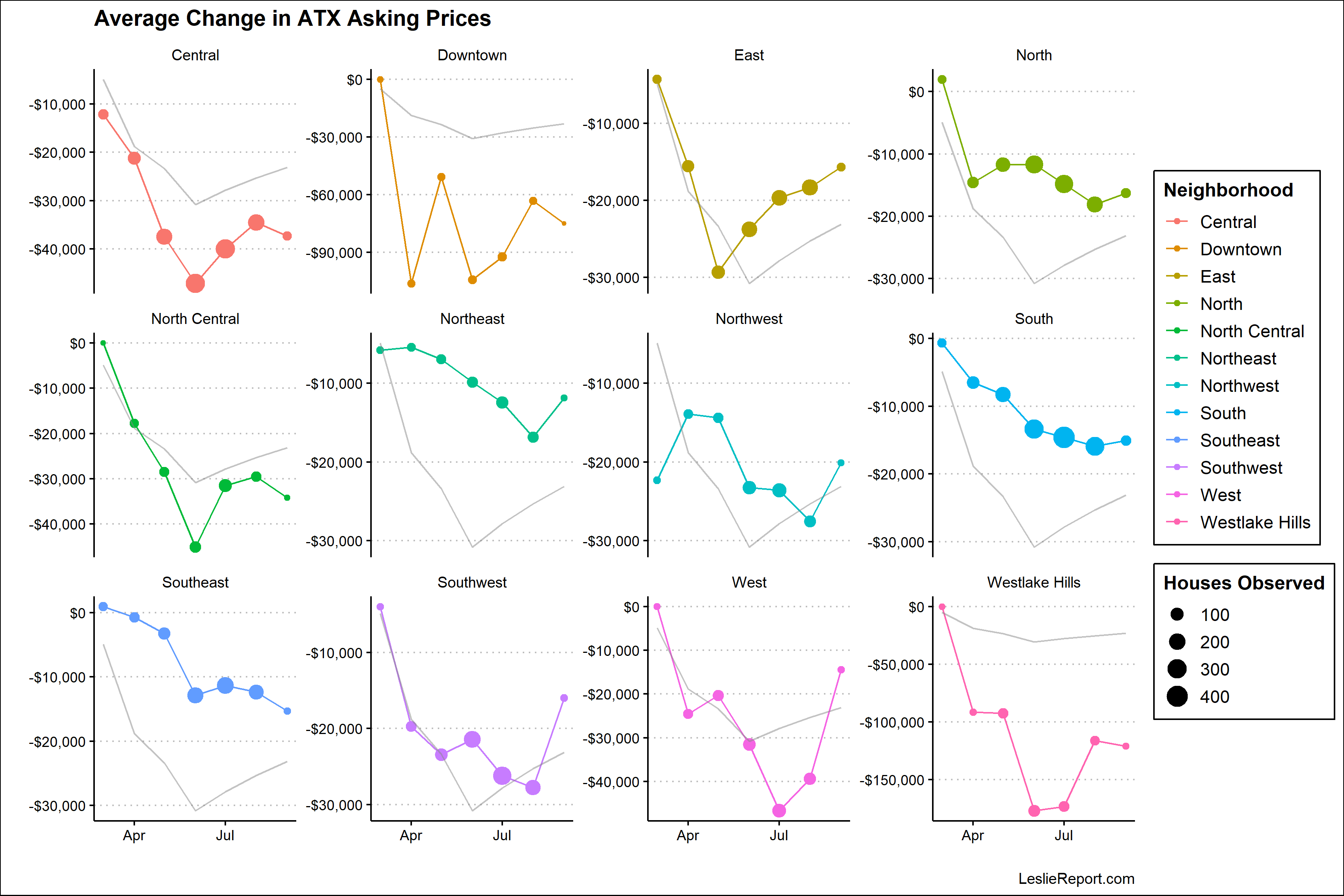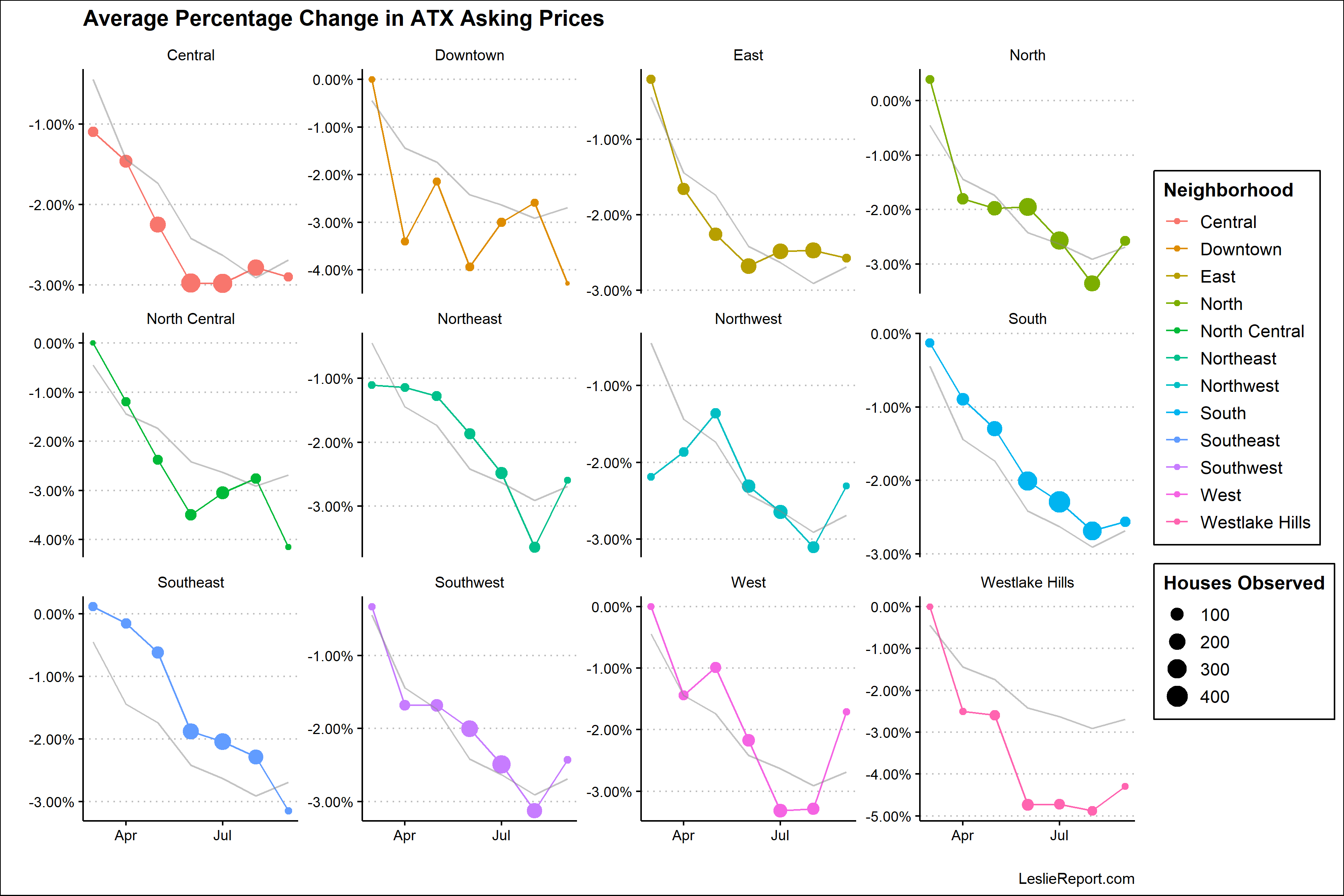Asking Price Dropping in Austin
fmarquez | Oct. 2, 2022, 8:10 p.m.
After experiencing a huge boom in housing prices, the housing market in Austin, Texas has recently seen a cool-down in asking prices for homes. This trend was observed across all neighborhoods in the city, with most new listings dropping by about 3% in June compared to previous listings. The cause of this decrease can be attributed to the rise in interest rates that occurred during that month
All neighborhoods observed a significant drop in asking prices during the month of June. Central Austin and South Austin, where most of the inventory is located, observed a drop between 2.5% - 3% or $50k for Central, and $15k for South Austin. Largest drop in value is Westlake Hills where we're observing 5% reductions or around $150k price drops.
The plots below illustrate how different neighborhoods are reacting to the interest rate spikes.


When interest rates increase, the cost of borrowing money to purchase a home also increases. This makes it more difficult for potential buyers to afford a home, leading to a decrease in demand. As demand decreases, sellers are forced to lower their asking prices in order to attract buyers. This is the reason why the rise in interest rates in June caused a decrease in asking prices for homes in Austin.
The ongoing COVID-19 pandemic has also had a significant impact on the housing market in Austin. Many potential buyers have been hesitant to enter the market due to economic uncertainty and job loss. This has further contributed to the decrease in demand for homes, leading to a decrease in asking prices.
However, it is important to note that the housing market in Austin is still relatively strong. The city has a strong job market and a growing population, which are both factors that contribute to a healthy housing market. Additionally, the decrease in asking prices may also be an opportunity for first-time homebuyers to enter the market at a more affordable price point.
Despite this trend, experts predict that the housing market in Austin will bounce back in the long term. The Federal Reserve has indicated that they plan to keep interest rates low to support the economic recovery. As the economy continues to recover, it is likely that demand for homes will increase, leading to an increase in asking prices.
Furthermore, the population growth in Austin continues to outpace the national average. This indicates a strong demand for housing in the city, which will eventually drive prices up again. Additionally, Austin's economy continues to be strong, with a low unemployment rate and a diverse economy, which will attract more buyers to the area.
Additionally, the city's development and infrastructure projects like the new Austin FC stadium, the redevelopment of the Green Water Treatment Plant, and the expansion of the Austin Convention Center, are expected to boost the economy, attract more people to the city, and increase the demand for housing.
Another factor that is expected to boost the housing market in Austin is the lack of new construction in the area. As a result, the supply of new homes is not keeping pace with the population growth, which will eventually lead to an increase in home prices.
In conclusion, the housing market in Austin has seen a decrease in asking prices in recent months due to the rise in interest rates and the ongoing COVID-19 pandemic. However, this trend is expected to be temporary, as the economy continues to recover and population growth continues to outpace the national average. The city's strong job market, low unemployment rate, diverse economy, and infrastructure projects will attract more buyers to the area, which will eventually increase the demand for housing and drive prices up again.

